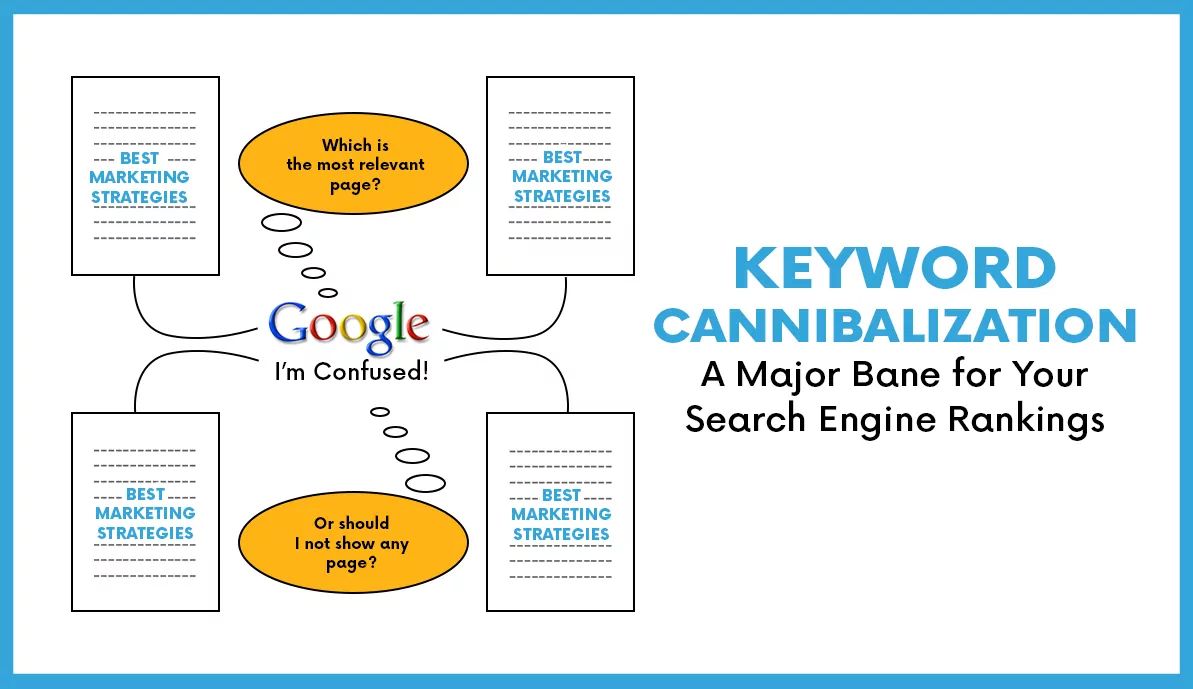In the competitive landscape of Google My Business rankings, businesses are always on the lookout for strategies that maximize their online presence. One issue that is often overlooked is keyword cannibalization, which can significantly affect a business’s local SEO performance. When several pages, listings, or posts target the same or similar keywords, they end up competing against each other and dilute their ranking potential. In this article, we will look at the best methods to identify, prevent, and resolve keyword cannibalization for optimal GMB ranking in 2025.
Understanding Keyword Cannibalization in GMB
Keyword cannibalization occurs when many pages, posts, or listings of the same business target the same keyword. Rather than ranking the business up, it confuses search engines to split the ranking potential between many URLs or entries. In the context of local SEO, it may be about the pages on a business’s website, its blog posts, or even the business’s different locations fighting over the same intent in a search, making the business less likely to be shown in Google’s Local Pack and Maps.
Lower Rankings – Instead of strengthening one authoritative page or listing, search engines struggle to determine which one to prioritize, leading to reduced rankings.
Why Keyword Cannibalization is Bad for GMB Rankings
Reduced Click-Through Rate (CTR) – Multiple similar listings can cause user confusion, reducing engagement and conversions.
Diluted Link Equity – Backlinks and internal links get distributed across multiple pages instead of strengthening a single, well-optimized page.
Inconsistent Information – There is a divergence of information in different listings or pages, which leads to the loss of credibility and reliability.
Methods for Determining Keyword Cannibalization for GMB Ranking
1. Site Audit
Use search engine optimization tools, such as Google Search Console, Ahrefs, SEMrush, or Moz, to find out pages competing for the same keyword. Identify how many URLs appear in the SERP for the same search queries and evaluate their performance.
2. Google Search Operators
Enter site: yourdomain.com “keyword” in Google to see if multiple pages from your website are showing up for the same query. This helps pinpoint instances where keyword overlap occurs.
3. Analyze GMB Insights Review Google My Business Insights to see if different posts or pages are ranking for the same keyword. If multiple locations or service pages are cannibalizing each other, adjustments are needed.

Methods to Prevent and Resolve Keyword Cannibalization in GMB
1. Optimize for Unique Keywords
Assign a different target keyword to each page, post, or listing. Utilize Google Keyword Planner to discover variations and long-tail keywords that will meet different search intents.
2. Consolidate Similar Content
When there are several pages or blog posts targeting the same keyword, consider consolidating them into one comprehensive resource. Implement 301 redirects from the old pages to the new optimized page to consolidate ranking power.
3. Use Canonical Tags
Use canonical tags on pages that have similar content but serve different purposes. This way, the preferred URL for search engines will be known. This helps eliminate unnecessary competition from similar pages.
4. Revise Internal Linking Strategy
Make sure internal links go to the most relevant page for a keyword. The anchor text of the link should be descriptive enough to show which page is more important.
5. Optimize GMB Listings Separately
For businesses with more than one location, make sure each listing is optimized with unique keywords, categories, and descriptions to avoid self-competition.
6. Utilize Structured Data Markup
Implement Local Business Schema on your website to help Google understand the relevance and hierarchy of your content, reducing confusion between similar pages.
7. Improve On-Page SEO Differentiation
Rather than optimizing multiple pages for the same keyword, separate pages with such variations as “near me,” service-specific terms, or geo-modifiers. For example, “SEO Services in Ahmedabad” versus “SEO Consulting for Small Businesses in AMD.”
8. Periodic Update and Pruning of Content Carry out periodic audits of content and identify outdated and redundant content. Remove, consolidate, or repurpose underperforming pages causing keyword cannibalization.
GMB Keyword Strategy Best Practices for 2025
Use Google Business Profile Posts Smarter – Upload posts with novel content and relate to different offers or promotions other than the product to avoid duplicates.
Monitor Listings of Competitors – Observe how competitors position their keywords when using GMB profiles and readjust your content strategy.
Capitalise on Review and Q&A – Encourage customers to input keyword-rich review and answer such questions using applicable terms without the duplication of pre-existing content.
Geo-Targeted Landing Pages – Create city-specific or service-specific landing pages rather than duplicating the same keyword strategy across multiple locations.
Conclusion
Keyword cannibalization is a silent killer for GMB rankings, leading to reduced visibility and engagement. Identifying instances of cannibalization and implementing strategic SEO practices can help businesses consolidate their authority, improve local rankings, and enhance user experience. As GMB continues to evolve in 2025, proactive keyword management will be important to maintain a strong online presence.
Source – MOZ


